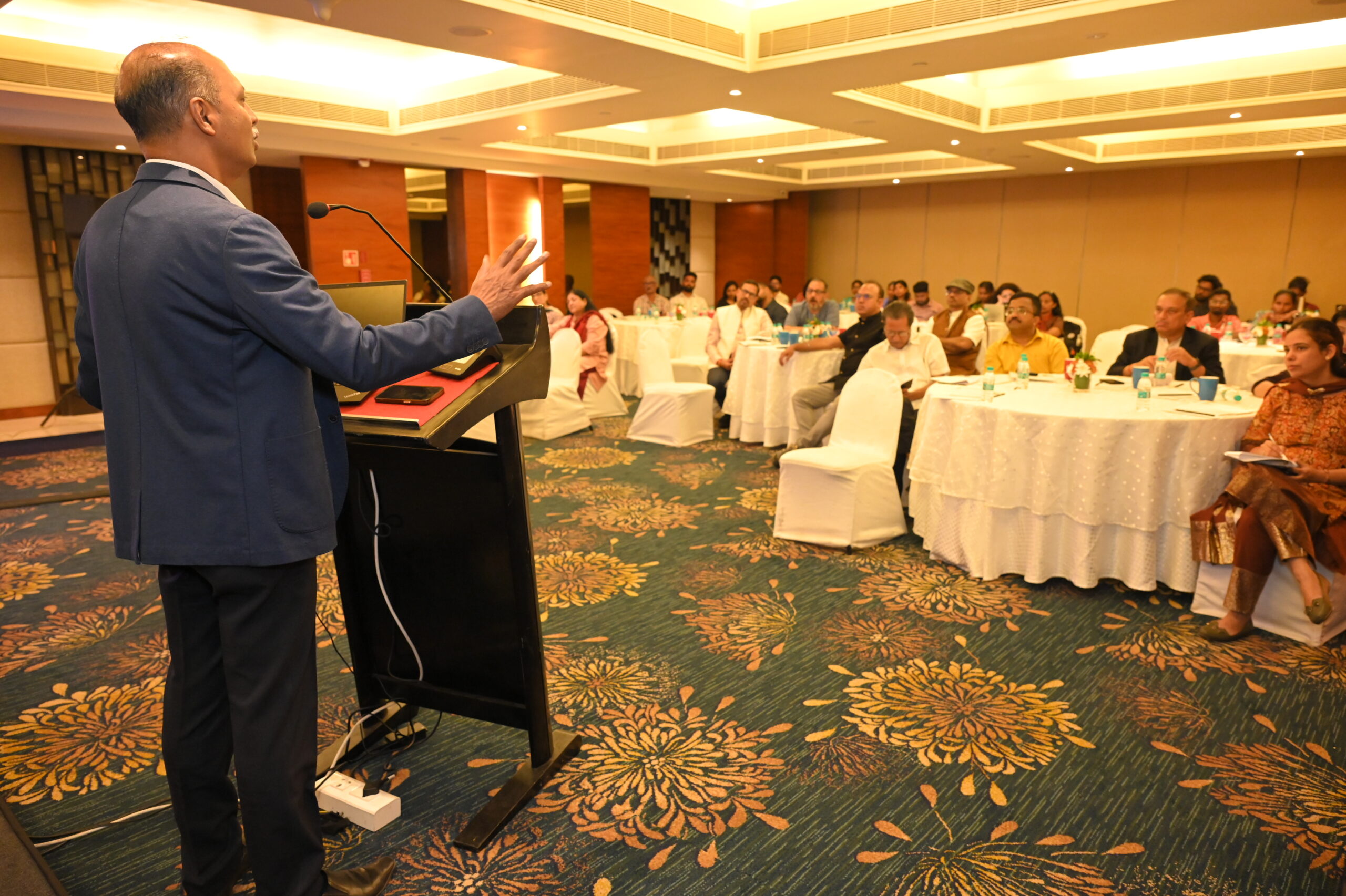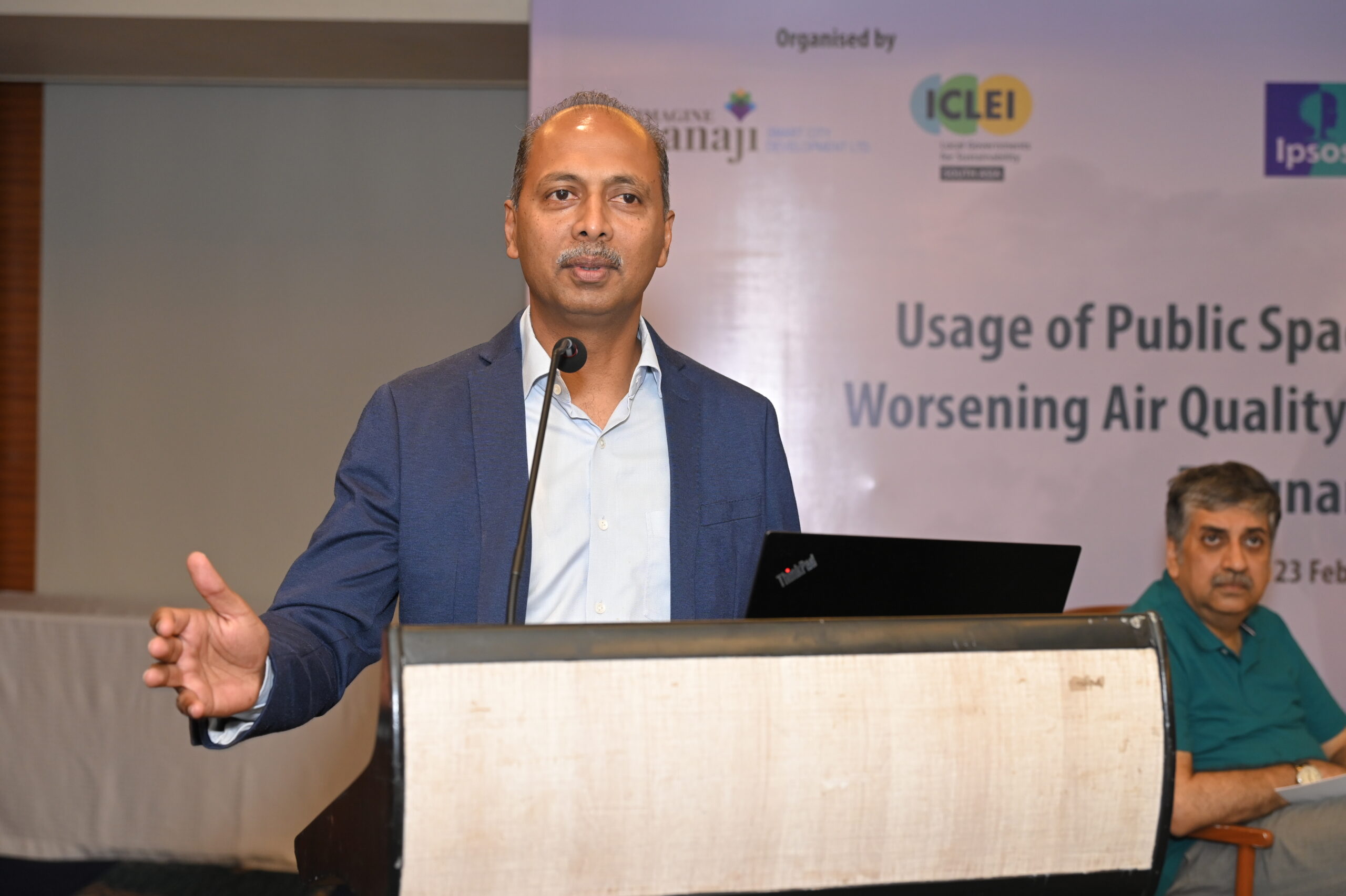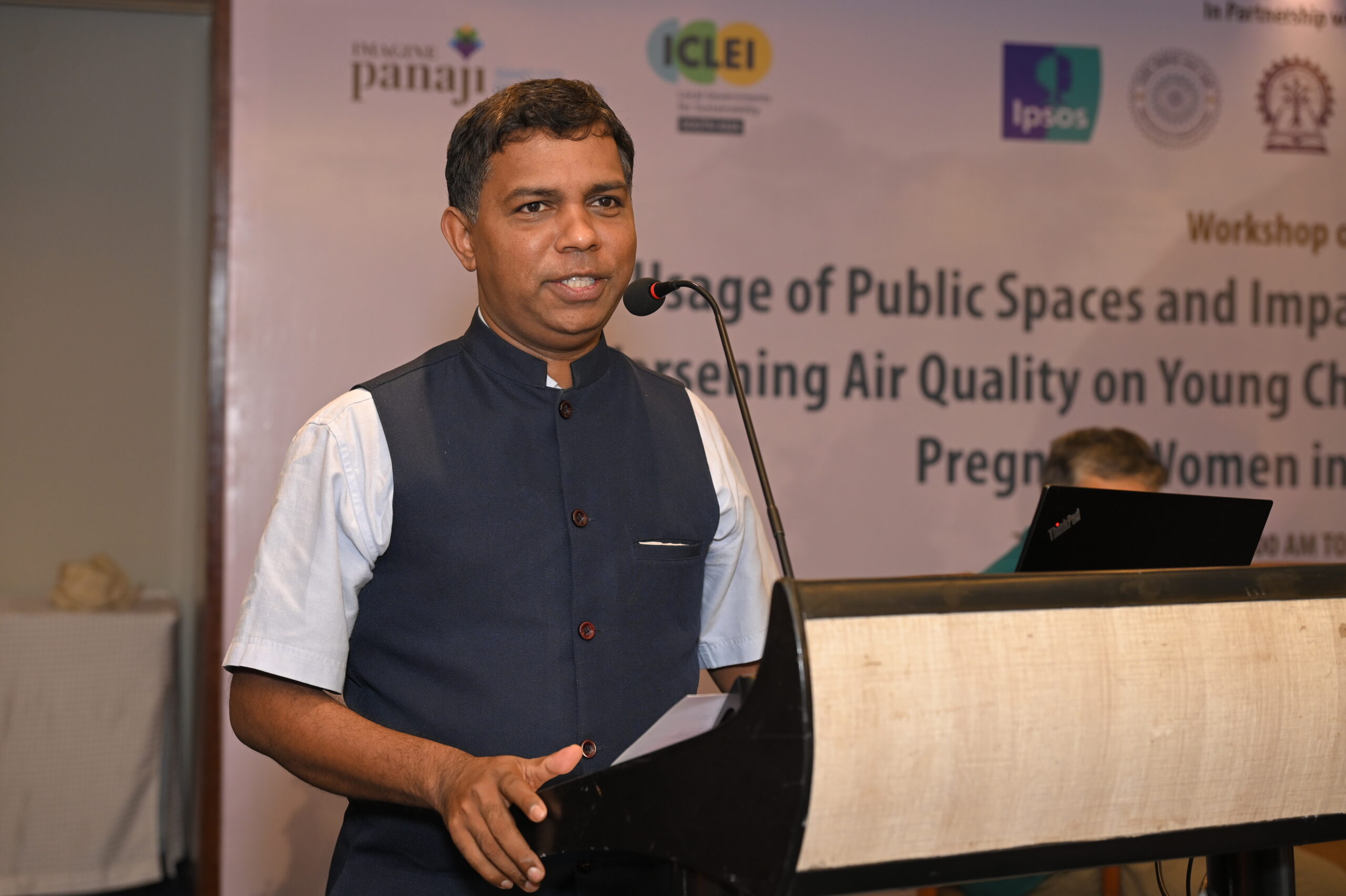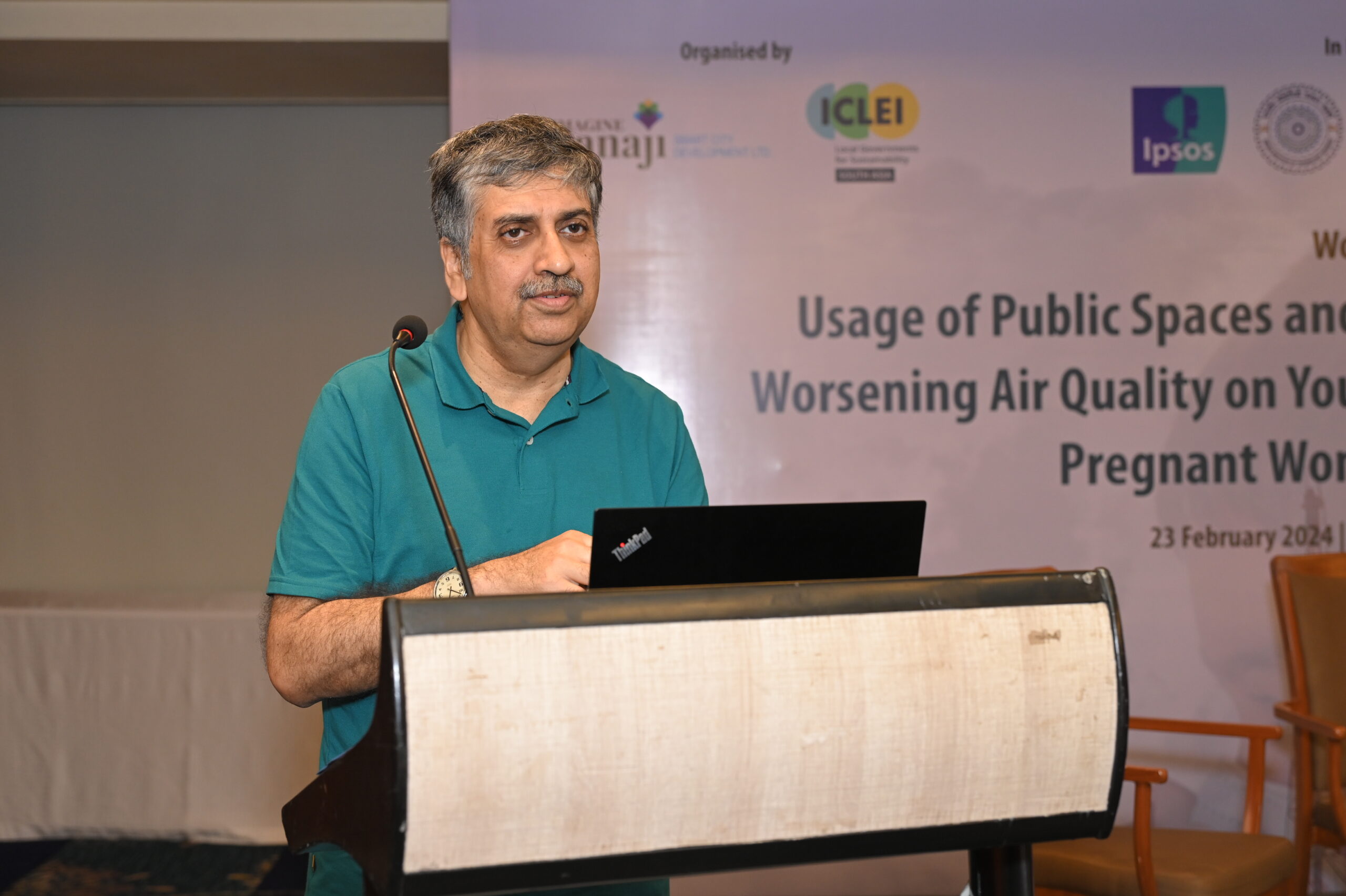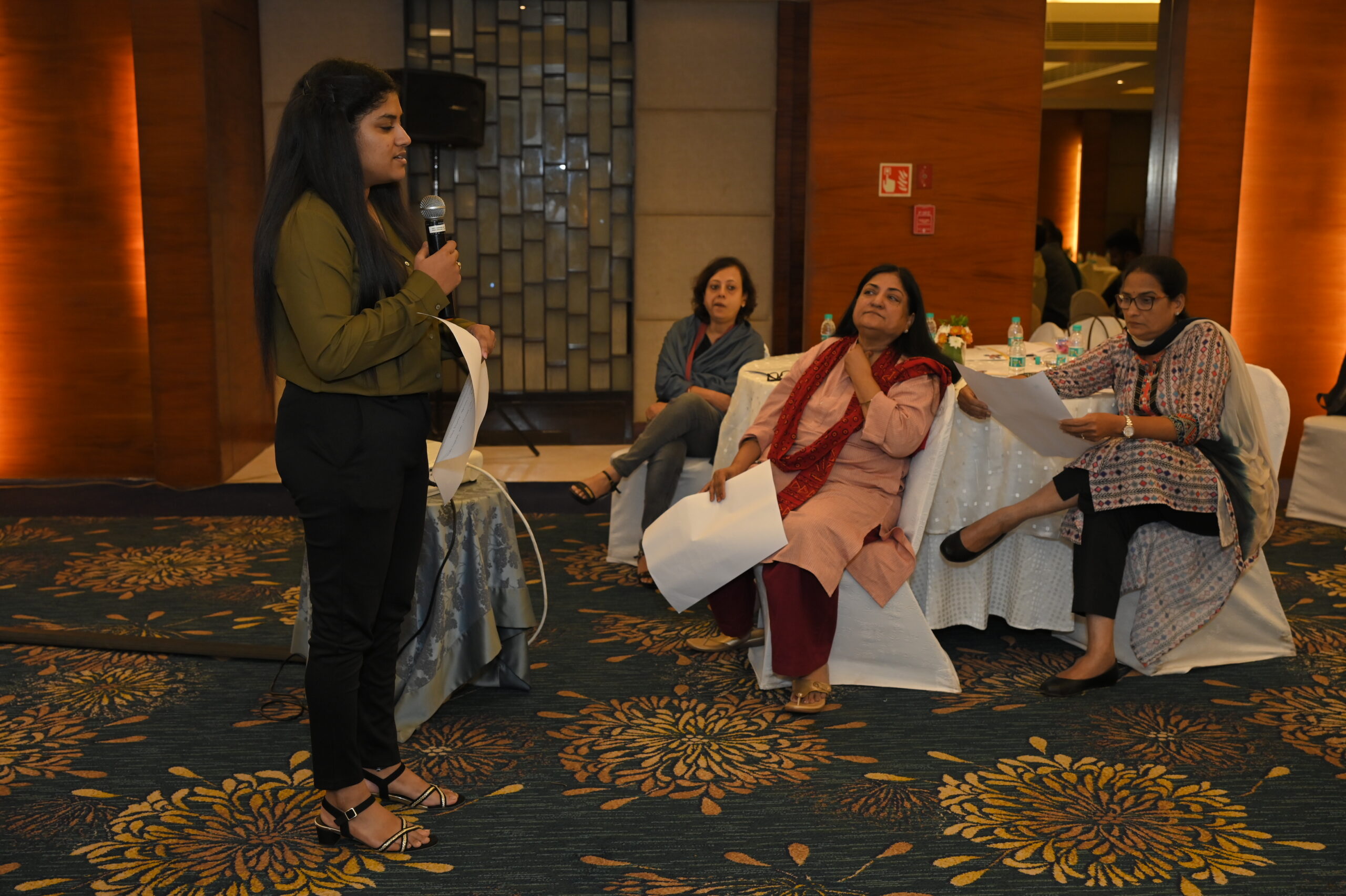Forging Pathways for Child-Centric Urban Planning

A Collaborative Leap Towards Building Sustainable and Inclusive Cities
Embarking on a quest to reshape urban spaces, a series of engaging discussions traversed the length and breadth of India, centering on the crucial imperative to safeguard the interests of our youngest citizens, their caregivers, and expectant mothers. This series of events reached its crescendo with a workshop that cast a spotlight on Panji, Goa, followed by an insightful webinar to cap off this series titled – Climate Change Impacts and Usage of Public Spaces by Young Children and Caregivers in Indian Cities.
The journey, which sparked dialogues in Guwahati, Kochi, and New Delhi, found its penultimate chapter in Panjim’s workshop—the culmination of domestic discourse before transitioning to the digital realm. These gatherings have served as a dynamic force, uniting stakeholders from various spheres to forge actionable plans and recommendations that are not only climate-resilient but also nurturing for the delicate fabric of childhood within our cities.
Away from the bustling streets of Panji, diverse stakeholders gathered for a workshop that marked a significant milestone in the journey towards inclusive urban development on February 23, 2024 while a gathering of esteemed experts and passionate urbanists took place on February 28, 2024, setting the stage for the webinar, enlightening as it was imperative.
The Panji workshop stood out for its heartwarming commitment to our future—the children. Hosted by ICLEI South Asia and Imagine Panaji Smart City Development Limited, and supported by the Van Leer Foundation, it wasn’t just another event; it was a clarion call to underscore an urgent need to rethink urban spaces in the face of climate change and the evolving needs of families, particularly young children (aged 0 to 5), their caregivers, and pregnant women.
At the core of this transformative workshop were two groundbreaking studies: the “Study on Young Children and Climate” and the “Usage of Public Spaces by Young Children, their Caregivers and Pregnant Women.” These aren’t just research papers; they are mirrors reflecting the overlooked needs of society’s most vulnerable. The Van Leer Foundation’s support for these studies underscores their commitment to nurturing a future where every child thrives in a safe, inclusive urban environment.
The “Study on Young Children and Climate” delved into the adverse impacts of climate change and urban environmental hazards on young children and their caregivers, especially around early childhood development (ECD) sites. Meanwhile, the “Usage of Public Spaces” study painted a vivid picture of how our public spaces, those communal areas meant for leisure, play, and community, often fall short in welcoming the laughter and joy of young children and their families.
The workshop saw insights being shared by speakers like Mr. Peter Borges, Chairperson of the Goa State Commission for Protection of Child Rights, and Mr. Sanjit Rodrigues, Managing Director of Imagine Panaji Smart City Development Limited, which didn’t just echo the findings but breathed life into them. Mr. Borges’s emphasis was on considering children’s physical and psychological vulnerabilities when designing urban spaces, while Mr. Rodrigues’ call was for a multifaceted approach to urban planning in which urban spaces nurture the dreams and health of our youngest citizens.
But what set this workshop apart were the working group exercises. It wasn’t just about listening; it was about doing. Participants from diverse backgrounds—city officials, civil society organisations, and urban planners—came together, not just in thought but in action. They brainstormed, debated, and envisioned practical solutions for making public spaces more accessible and safe for children and their caregivers. These exercises weren’t just group activities; they were the seeds of change, sown in the fertile ground of collaboration and shared purpose.
Experts on urban planning and child safety brought together a multitude of perspectives, each contributing unique insights into the challenges and opportunities in creating child-friendly urban spaces. Mr Ashish Rao Ghorpade, Urban Sector Expert, ICLEI South Asia, shared findings on the conditions affecting young children, public spaces, and climate change, while Dr. Arunava Dasgupta, Professor, Department of Urban Design, School of Planning and Architecture, New Delhi, spoke about the importance of ongoing dialogue to understand the nuances of Indian urban environments for children.
Experts like Dr. Kaushal Kumar Sharma, Jawaharlal Nehru University; Dr. Ajanta Goswami, Indian Institute of Technology, Roorkee; Dr Vishwesh Khandolkar, Goa College of Architecture; and Dr. Mukunda Dev Behera from the Indian Institute of Technology, Kharagpur, enriched the discussions with their research on urban development and environmental studies, focusing on methodology, findings, and real-world impacts.
Participants engaged in working group exercises, brainstorming on enhancing access and utilisation of public spaces for children and their caregivers. Ujjwala Sinha, Principal Architect at Studio Earth, brought attention to the specific challenges in Mapusa, Goa, such as traffic congestion and the scarcity of safe play areas.
Meanwhile, the two-hour webinar session, powered by the combined efforts of ICLEI South Asia and its partners, saw Mr. Prakash Paul from the Van Leer Foundation, Dr. Anubha Rajesh from Jamia Milia University, Dr. Bharath Haridas Aithal from IIT Kharagpur, and Dr. Ajanta Goswami from IIT Roorkee, each delivering a trove of knowledge on the nexus of urban planning, climate adaptation, and the protection of vulnerable populations.
Mr Paul accentuated the heightened vulnerability of young children to air pollution, noting the significant brain development that occurs in the first 1000 days of life. He highlighted the Urban95 initiative by the Van Leer Foundation, aimed at creating healthier environments for children across 85 cities while Dr. Anubha Rajesh stressed the importance of child-friendly public spaces for developmental learning, advocating for outdoor time and the challenges posed by restricted access and poor air quality.
Dr. Bharath Haridas Aithal discussed the need for modular solutions in urban planning, such as enhancing non-motorised transport to ECD sites and integrating green spaces and educational initiatives tailored for young children. Focused on the risks posed by India’s climate change and pollution on children’s health, Dr. Ajanta Goswami spoke about alarming pollution levels at child height in various cities, which exacerbate respiratory issues and increase the risk of heat-related illnesses.
The spotlight shone on both the studies with voices of Ms. Avantika Arjuna and Ms. Pragya Jain resonated with the audience as they navigated through their comprehensive research findings from the 18 Indian cities. This webinar didn’t just highlight the urgency of integrating child well-being into urban planning—it was a masterclass in weaving the threads of public space design, climate resilience, and inclusive development into the fabric of Indian cities.
The workshop in Panaji and the webinar were milestones in the collective journey towards a more inclusive, resilient, and child-friendly urban future. The studies, supported by the Van Leer Foundation, along with the wisdom and commitment shared by all participants, set the stage for a transformative shift in how we envision and build our cities. For in the smiles, laughter, and well-being of our children, lies the true measure of our success.
